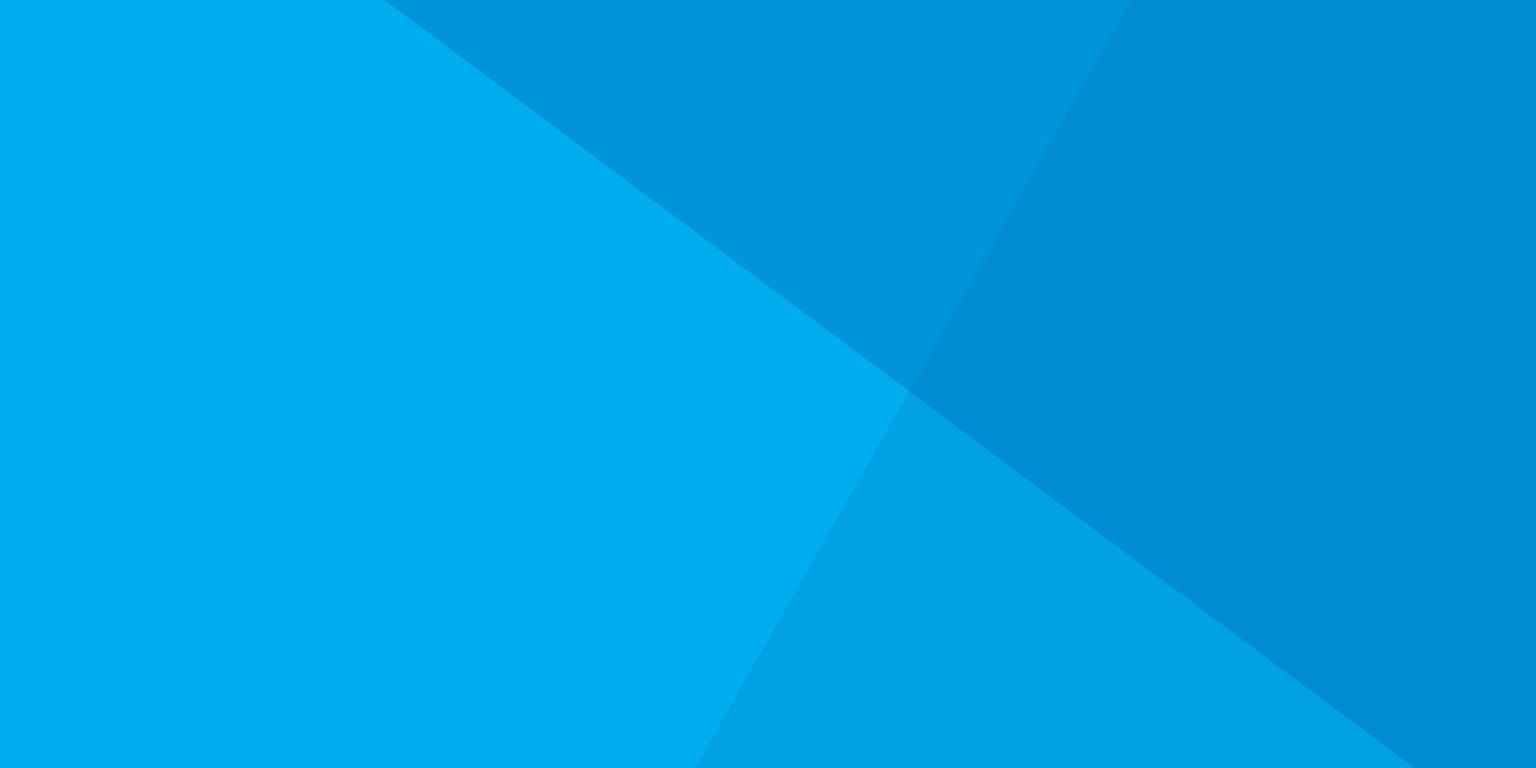The staff at LuminfFire (formerly Cimbura.com) welcomed a full house at the October Grand Opening Celebration of their new office location (5155 East River Road, Fridley, MN). They were honored with a ribbon cutting ceremony with Mayor Scott Lund, and keynotes from business growth expert Mark LeBlanc and business strategist and trust expert David Horsager, whose keynote is featured here, highlighting the importance of Trust in any organization.
David Horsager and Tim Cimbura met 18 years ago, became fast friends, and spent time hanging out and working together. They have since remained friends, and, in fact, Tim and Brenda Cimbura were instrumental in promoting David’s first book. David actually met It was an honor to have David be a part of this momentous Grand Opening. Interestingly, David and Brenda Cimbura were connected long before Tim and Brenda got married.. more on that later.
At LuminFire, we follow the principles outlined in The Trust Edge to build excellent relationships with our clients. When trust breaks down, it can cost a business dearly.
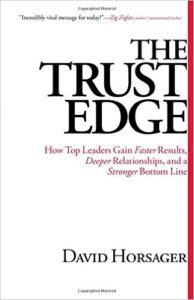
Without trust, leaders lose teams and sales people lose sales. We all lose productivity, retention of good people, reputation, morale and revenue. The lower the trust the more time everything takes, the more everything costs, and the lower the loyalty of everyone involved. However, with greater trust come greater innovation, creativity, impact, freedom, morale, and a bigger bottom line.
All of my Graduate research points to the fact that trust is the unique commonality of the most successful leaders and organizations. Obtaining this level of trust isn’t easy. If you are looking for a quick fix, don’t look to trust. While it may appear to be static, in reality it is more like a forest—a long time growing, but easily burned down with a touch of carelessness. Trust is by nature solid and proven. Without trust no lasting, genuine success exists–just a brittle, fluffy, mirage of the real thing. The good news is that we can build this fundamental key to success. It is worth it! And it is the ONLY way to genuine relational or organizational success. The Trust Edge is the competitive advantage gained by being trusted whether as a mom or dad, a community leader or a consultant, or a business owner or government leader.
Trust affects your bottom line.
Through the illustration of 8 pillars: (1) Consistency, (2) Clarity, (3) Compassion, (4) Character, (5) Contribution, (6) Competency, (7) Connection, and (8) Commitment, “The Trust Edge” tells you how — by doing the right things and making the right decisions — you can increase the level of trust that people have in you or your business so that you can ultimately be more profitable and enjoy greater success.
https://vimeo.com/196631630/5cdc019c70
Below is the full transcript of the introduction and video of David Horsager’s Presentation at the grand opening event…
Tim: We’re excited to have a very special guest with us today. I first met David about 18 years ago after he moved to Minnesota with his wife, Lisa. We became friends very quickly and spent time hanging out and working together. He encouraged me to join the National Speakers Association.
Fast‑forward about two years from that time, I met my wife, Brenda. She wasn’t my wife at the time, but she was my 110th match on eHarmony.com. Brenda had been friends with David in college, at Bethel University. My first issue with David, then, was why he hadn’t personally introduced me to this amazing woman sooner.
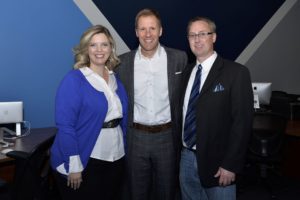 In fact, Brenda hired David when he first moved back for his first event, when he’d returned, and I was there but I didn’t meet her. Brenda lived a mile away from me, in Fridley, but I didn’t meet her at the grocery store. No, I had to meet her on the Internet.
In fact, Brenda hired David when he first moved back for his first event, when he’d returned, and I was there but I didn’t meet her. Brenda lived a mile away from me, in Fridley, but I didn’t meet her at the grocery store. No, I had to meet her on the Internet.
One way to gain trust is by transferring it from another person. Trusting Brenda was very easy. David helped me to make my decision to get engaged to Brenda later only two weeks of serious dating, and we were married 120 days later. She’s been an amazing partner in life and in our business.
David is an internationally recognized expert on trust. He has led the biggest national trust study. He has invented the Organizational Trust Index, and “The Trust Edge” book is a national bestseller, reference on the topic.
He teaches organizations how to improve their results through trust. He’s worked with big organizations like Toyota, which is also a FileMaker client, FedEx, the New York Yankees, and even the US Congress.
I hope you will welcome David today and give him a big hand. [applause]
David: Thank you.
Great to be here. When I get home from a business trip, or the airport, or something like that, my kids often greet me at the door.
They’re growing bigger all the time, but my little one often shouts the same thing. He pulls up on my pant leg. He says, “Daddy, throw me up in the air really high.” Anybody have a kid like this? “Throw me up in the air really high,” so I do.
Do I still have an issue? I’m going to not do it, because that’s worse. Can you hear me better? Without it’s better? Let’s go with the lights, too.
Happily. [laughter]
I was thinking this is working really well for me. [laughter]
Ladies and gentlemen, we’re a technology company. [laughter]
Here we go. We’ll make this fast. This is my son. One breach of trust and what happens?
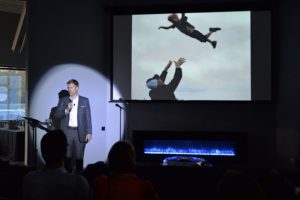
He’ll never ask me again. Fundamentally, one breach of trust and he’ll never ask me again.
I believe, and this goes back to 15 years ago, all my graduate research. Now we do put one of the biggest, or the biggest, national study out every year on trust, but I believe the first finding is still true from my graduate research. That is, a lack of trust is your biggest expense.
The biggest cost of any company, the biggest cost of any organization, and the reason we like LuminFire is because of trust.
One of the newest pieces of global research shows countries where citizens trust each other more they have lower poverty, and vice versa. Isn’t this true? I was in a country not very long ago. An entrepreneur does not know if they’re going to get a license to do business in one month, one year, or ever. It is costing their GDP every single day.
I was asked to be the commencement speaker at our great university a few years ago. Walked back on campus. First thing I show my kids, 23 years after walking on that campus for the first time, is my post office box.
That PO box is in the exact same spot it was when I walked on campus. It’s got the exact same number on it, 681, but it’s different today. How is that PO box different than it was 23, 24 years ago? It’s got a what? Pardon me?
Audience Member: It’s empty?
David: than it’s empty. They still use paper.
Audience Member: It has a lock on it?
David: A lock, yes, brilliant one. It has a lock on it because at some point some freshman put something stupid in some sophomore’s PO box. Now they all have locks.
What’s the cost of having a lock on something? This is the interactive portion, as Marco would say.
Audience Members: Trust.
David: Trust, but what’s it cost in this case? Time. It costs a few bucks for the built‑in thumb combination locks, but the real cost is time. Now I’ve got to use my thumb comb every time.
For me, I scraped plates at food service freshman year for three bucks an hour. Instead of collecting my grades, or my check, or whatever, that note from that sophomore, I’ve got to use a thumb combination lock that costs us time.
There’s always a cost. I’ll show you what happens, very briefly. Before we get to it, when I say the word trust, different words come to mind. We find, globally, people think they know it all about trust. I thought I knew it, about trust.
How many of you think it takes a long time to build trust? Many, and yet in a moment of crisis, like 9/11, complete strangers trust each other like that if they’re running the same direction.
How many of us think transparency is trust? Transparency, the word of the day in management circles. “Got to be vulnerable.” “Got to be transparent.”
Confidentiality is also trusted. That’s why some of your kids are taking their clothes off on Facebook. They’re so transparent, I don’t trust them, because confidentiality’s also trusted. Confidence is trusted. Arrogance isn’t. Does that ever overlap for leaders? Or course. We can think, “If I extend more trust to my team as a leader, I’ll get more out of them until I extend too much.”
Growing up on the farm in North Central Minnesota ‑‑ I was gone for a time, moved back to Minnesota, but I grew up here ‑‑ up on about 1,500 acres in Wadena County. I might have a chance today. Anybody heard of Verndale, Minnesota? We set a record. [laughter]
504 people in Verndale, a lot more cattle. The farm is eight miles north of there. I still remember the day, jumping up on that 706 International tractor. I remember pushing in on the clutch.
I didn’t have the muscles to take it out of gear, when my dad said, “Hold down the clutch,” so he could get under the baler to fix it, knowing if I let off that clutch I’d run him over. You learn something about trust. It’s bigger than you think, I would argue, and we must think bigger about it.
Trust. What are some words that come to mind, by the way, when I say the word trust? Think of some words. What have you got?
Audience Member: Loyalty.
David: Loyalty is a good one. What have you got?
Audience Member: Ethical.
David: Ethical, what else?
Audience Member: Respect.
David: Respect.
Audience Member: Earned.
David: Earned.
Audience Member: Dependable.
David: Dependable.
Audience Member: Truth.
David: Truth, what else?
Audience Member: Honest.
David: Honest, safe, all these things. You can see how efficiency would go up.
A few pictures. Gentlemen in the room, this is a picture of trust. [laughter]
David: Who wants to be the last dude? Let me tell you something, my sons understand trust. Public restroom, the stall was not available. When I walked on the scene it looked like this.
David: As you can see, they trust each other. That’s Mikah on top. Every mom in here, that boy on the bottom better wash his hands.
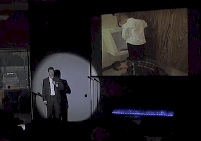
David: Even animals have a perspective of trust. In the original research we defined it this way, “Trust is a confident belief in a person, a project, an organization.” When I confidently believe in you, everything changes.
I’ll show you what happened in the research. I’m going to give you a glimpse in our 13 minutes together. This is an infographic of the original research, hundreds of organizations, thousands of leaders.
Now we’ve backed this up in the ongoing research every year. The Trust Outlook 2017 just came out in the last couple weeks. Every time, when trust increases, output, morale, retention, productivity, innovation, loyalty, it all went up.
You think of a team you trust, you’ll share ideas. A team you don’t trust, you won’t share ideas. There’s always a cost. That’s why finding a company like this, finding a group like this, finding someone you can trust, it’s so valuable.
Every time, cost, problems, skepticism, time to get anything done, it all went down, every time. I’ll give you a glimpse of a little of the outside research first. High‑trust companies up from low‑trust companies, about 186 percent.
Our new research, this was interesting, in the Trust Outlook. I’m going to throw out a couple new things. We just got the research back. National study, weighted against the national census, significant study.
Here’s the finding. I thought the most interesting was not this one. It was that a meaningful number in every single generation would take a pay cut if they trusted their leadership. More than 13 million Americans have invested over $100,000 based purely on trust. Half of Americans have invested $1,000 based simply on trust.
This is the news for our government. 9 out of 10? This is what’s happening in our government over the last few years. Let me jump to it. This is the last six years, our trust level in the government in America.
We have come challenges, like this sequoia tree out in Northern California. It takes a long time to grow ‑‑ 22,000 years old the scientists say, a football field‑length high ‑‑ a touch of carelessness by a camper or a strike of lightening, you burn the whole forest down in a fraction of the time it took to grow.
It’s the same with trust. On one hand a lot of trust can be built in a moment. On the other hand, it takes a long time to build deep trust. Number one, a lack of trust’s your biggest expense. That was the first half of the research. New York City, this is Jason Kottke’s research not mine, but it summed put the first half of my research.
Over a decade ago he was researching the coffee and doughnut stands they push out in Manhattan those weekday mornings. How many of you have been to Manhattan? You’ve seen these. It turns out, if you go up to Ralph’s stand, he serves people different than all the other stands in New York City.
If you go up to Ralph’s stand and you ask for one glazed doughnut, Ralph shouts, “75 cents.” If you try to pay him a buck, a dollar bill, for that 75‑cent doughnut, he motions you onto the end of his little shop on wheels where there’s a tray.
On the tray there’s change thrown about. In the middle of the tray’s a cup. Out of the cup cash bills, sticking out of the cup, on a tray, on a stand in New York City. We might expect this in Verndale, Minnesota at Mr. Olsen’s veggie stand, but New York City?
What happened at Ralph’s stand? Ralph served twice the customers of any other stand researched in New York City. He served them in half the time, because he didn’t have to take his latex gloves off like all the other vendors. He had loyal customers. Why? Fundamentally, because of trust.
This does not mean I believe we should trust everyone. Do you think there is bad math or sticky fingers once in a while? Of course. It simply shows where you have it, where you create it, you’ve created the most effective, efficient environment you can possibly create.
Where we are most trusted we have the greatest efficiency. It doesn’t mean we should trust everyone. Even Ralph no longer runs his stand like that, unfortunately.
There’s good reasons not to trust people. What are some reasons not to trust? What do you think? You thought looking away was going to help.
[laughter]David: What do you think?
Audience Member: You don’t know them.
David: You don’t know them. What else? Anybody?
Audience Member: Bad track record.
David: track record. What else?
Audience Member: Theft.
David: Theft. There’s a lot of good reasons for not trusting. I don’t trust my flight to be on time. I’ve had the experience. I don’t trust the re‑modelers of my wife and I’s kitchen are ever going to finish.
I don’t trust that boy with my daughter. I’ve been a boy. I don’t trust reality TV is that real. If you do, you might have a problem. I don’t trust people that say things they don’t mean, like, “Just trust me.” I did until you said that.
Or, “Let me be honest with you.” What have you been for the last half hour, dude? But where we find it, where we create it, we’ve created the single greatest advantage I believe you can create. I believe a lack of trust is the greatest expense we can have. That’s why we look so hard for organizations where we find it.
Just to let you know, the second question I ask, I’m not going to get into this in this time together much. The first question was, “Is trust really that important? Does it really affect the bottom line?” Turns out it does more than anything else. I believe everything of value, from financial institutions to every good relationship you have, is built on trust.
I think other people are getting it. Now in the last five years, all these books have been written on trust. When I was working on this, almost nothing was written on it, and very little original research. In the last year, Forbes made trust the business word of the year. Best places to work threw out engagement and put trust as the number one metric. Engagement is nothing without trust.
The second question I asked is, “If trust is this important, how do you actually build it?” Turns out eight traits came out of this research. I call them pillars because I think they hold up this great advantage of being trusted. We call it the trust edge.
I’ll show you what they are just so you know them. There’s a whole lot more we could talk about on exactly how to build it, but let’s take a look.
Before we do that, I know you’re thinking, “This guy is an expert on trust. Can we please do a trust fall?”
[laughter]David: Here’s your trust fall. Do you have volume? There you go.

Man: Buddy, your sister wants to try something. It’s called the trust fall. She just learned how to do it.
Boy: OK.
Man: Do you want to try it?
Boy: Sure.
Man: It should be easy. All right, what you need to do is you’ll close your eyes, and then you’re going to fall, but she’s going to catch you. All right? You promise to catch your brother, right?
Girl: Yeah.
Man: Good. Close your eyes. Now go catch your brother. On the count of three, I want you to fall, but she’ll catch you. One, two, three. Oh.[laughter, as boy falls forward rather than backward]
David: There you go.
[laughter]
David: These eight, I’ll give you a little life to them. I talk about this for three days, but I want you to see what they are, to give a little life, to see that it’s not just honesty. It’s not just integrity. Those, of course, are important, but here they are. By the way, when they came out of the original research, they were relatively co‑equal.
To have a trusted brand, a trusted leader, a trusted organization, a trusted government, you needed all eight to really gain the full advantage. Some might be more foundational in certain settings, but all eight.
They are not a step‑by‑step process, you could start anywhere.
Number one is clarity. Turns out, people trust the clear, they mistrust or distrust the ambiguous. I’m telling you, around the world, organizations I talk to think they’re clear and they’re not. Talking about focus mark, the expert in this one.
Clarity is trusted. Ambiguity is not trusted, and neither is over complexity. I used to be a professor, and I would say ‑‑ it didn’t win a lot of friends ‑‑ academia breeds arrogance. You think you know something, so you think you know something. Some organizations are like that, where we’re just so complex. We have 15 rocks. We have 17 priorities.
Collins says you have more than three priorities, you don’t have any. It was less than eight years ago in “Webster’s” that priority was a plural word. This is work, to be clear. This is why a strategic plan, it’s so much harder to make a one‑page than a hundred‑page strategic plan.
I see them all the time, full of garbage, no one wants to be accountable to it, no one needs to understand it. It lacks clarity, and therefore it lacks trust.
Number two, compassion. It turns out we trust people that have intent beyond themselves. I feel like you actually care about me, I might trust you.
Who is the least trusted this year, do you think? From the research, least trusted occupations in America.
Audience Member: Bankers.
David: Bankers. Who else?
Audience Member: Lawyers.
David: Employers?
Audience Members: Lawyers.
David: Lawyers. Politicians. Good ones. Who do you think this year globally is the most trusted?
David: In this case, it’s kind of both.
Audience Member: FileMaker developers.
[laughter]
David: Number one most trusted, ahead of nurses, ahead of firefighters, ahead of farmers even, is mom. You can say of course. Because she has the ability to think beyond herself, we can learn something from mom.
Number three is character. It is not everything. We can talk about how you find it in companies and everything else, but the number one finding for this one, for leaders, is they did what needed to be done when it needed to be done whether they felt like it or not.
Have things changed in America at all on this one? What do parents my age ‑‑ forty‑something years old ‑‑ say to their kids when their kids go to the ball game or out with friends Friday night? What do we shout? Have fun.
But find someone in your grade. Mr. McDonald, they did not say that, did they, 40 years ago? Parents said be…
Audience Member: Safe.
David: Mom said be safe and dad said be good. They do not care if you have fun. You’ve got the family name, you had better be good, young man.
I don’t tell my kids to have fun. I don’t ever do it. They know it. I don’t want them Friday night being, “Dad said have fun, I guess I’ll go this thing.” I want them to think, “Dad said be good, I better do this.” You and I know it’s not a perfect science, but we also know you can build character for a lifetime. We’ve seen people change in prison. The idea that you can’t change after 12 years old is baloney.
I like the Kelly research that came out a couple of years ago. The more you seek pleasure, the less you have. Isn’t this true? Seven scoops of ice cream right here. I think I’ll eat it all. Afterwards, do I feel better or worse?
Over here, I got to work out, or I got to do some research. I do not feel like doing that thing which I do, I do that thing which I do not feel like doing, afterwards, do I feel better or worse? Better.
If you’re going to seek anything, he would argue, seek satisfaction, not pleasure. It’s great to have fun, but you only get it if you seek satisfaction. If you seek pleasure on its own, financially, sexually, or any other way, you always hurt someone, usually yourself and others if you’re only seeking pleasure.
Those that had character under this study did what needed to be done when it needed to be done whether they felt like it or not. Next one is competency. I trust Marco with my kids. I know him. I know who he is. I know his character. I trust him to take them to the ball game.
I might not trust Marco ever to give me a root canal because of his competency at that specifically. We trust someone who is competent. This is something you’re known for here at LuminFire. You’ve got to have all of them, but you’ve got to have the competency. We don’t trust the surgeon who did that 20 years ago, that surgery. We trust the surgeon who’s doing 50 of those eye surgeries a week.
Number five is commitment. We trust people that will stick in the face of adversity. If you think of anybody who’s left a legacy in history long term, from Martin Luther King to Jesus to Mandela, it’s someone who’s sacrificed. Commitment.
Number six is connection, the ability to connect and collaborate. Many great examples on the way people build trust using this one today.
Number seven is contribution. I will tell you in the original study by the way, this is the only one that did not spit out as a C only. Four words came out. Results, outcomes, performance, and contributor. The others might have had other words, but those actually people ask me that’s basically what…compassion, you might add love, you might add different ways of caring, talking about it.
Basically those were the words. Contribution, the number one word that came out was results. You can have compassion and character, but if you don’t give me the results I expected or asked for, I cannot trust you.
Number eight, it’s consistency. It’s the king of the pillars, because whatever we consistently do, we’re trusted for. This is why we trust McDonald’s. We might not like them, but we trust them because I’ve had the same burger on six continents.
This is why we can’t stand moody people. Where are you going to be at today? Happy, sad, mad, you’re stressing me out. I would rather have an angry curmudgeon every single time day than a moody person. Wouldn’t you? I can manage that.
Consistency is trusted, and that’s what you expect here. I can tell you right here, from a mile away, that’s my first day walking into this office, is there consistency in the brand like other offices? Totally unlike almost any other office I’ve been to lately. It’s unbelievable consistency. In the cult, even to our other speaker.
The color, the feel, the way you are treated this year. I know some of those clients ‑‑ and we’ve talked about this ‑‑ are long term. Why? You only get long‑term clients if you’re consistent.
There’s four reasons to go buy a bunch of my books, but anyway, since I didn’t bring any today. [laughter]
David: The question to leave with is, “Is it better to be trusted or trustworthy?” You know how many audiences I talk to that do not say that as a response?
The most deceptive person is the one who looks trusted but in fact is not. The one I want to work with is the one who is, in fact, trustworthy. They really have what we would call a trust edge. My hope is that you would have it.
I know some dear friends of 18 years of mine have it. I’m grateful for them. I’m grateful for what you’ve done in this company, and more grateful for what you’ve done outside of this company.
I hope you enjoy this advantage we call the trust edge. Thanks for letting me be here. [applause]
Brenda Cimbura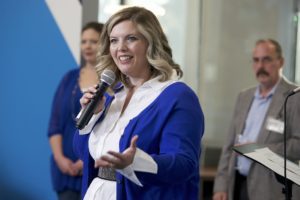 : It’s such an honor to have you here tonight, [David]. I thank you for the gift of teaching us how we can all improve in the relationships and the work that we do every day.
: It’s such an honor to have you here tonight, [David]. I thank you for the gift of teaching us how we can all improve in the relationships and the work that we do every day.
His book, The Trust Edge is an incredible book. If you haven’t read it, I would highly recommend it to you. There is a story in that book about a guy named Tony. I would ask you to maybe go search for that in that book because it’s actually Tim’s story.
Dave has leaned into some of our experiences where trust wasn’t the number one priority in an organization. How that influenced us to approach work, life, family, and our relationships differently, and hopefully a lot better.
I want to let you know that I think some of the most amazing people are in this room. We want to let you know as our clients, as our friends, as our family, you really matter to us. We love the work that we do. We are so grateful to have the opportunity to work alongside many of you and also call you friends.
Thank you for coming tonight. I hope that you found something that was interesting, heartwarming, encouraging, insightful, and most of all, I hope you’ll give us a call if you have questions about the things that you might be leaning into.
We love to talk about growing businesses, and we also just like people. We thank you for coming, and please enjoy some more food and beverage before you leave because my kids don’t need that much chocolate. [laughter]
Thanks for coming.
David’s Book, The Trust Edge, is available at Amazon.com

